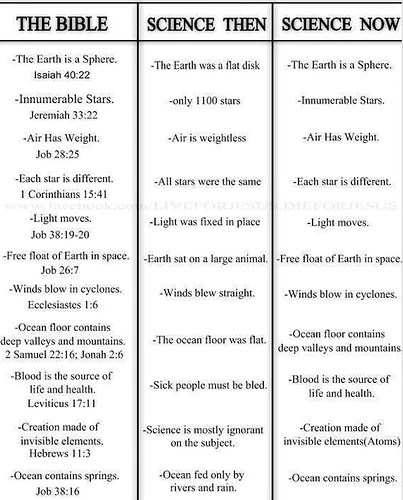This argument is ignoring the real questions.
The real questions are where did we come from? why are we here?, and where are we going (what comes next)?
These are philosophical questions.
Given Christianity is a philosophy and not a science, it is bogus to think that science defines or even explains the philosophy, or is authoritative…it simply is not.
Then the argument becomes, oh the philosphical writings must be interpreted incorrectly. That has been proven false so now its, oh they are written for a different genre (different audience whatever).
The problem with the genre argument…language is universal (no matter what language the same is true). If a passage 5,000 years ago uses words that we know today have the same meaning, its ridiculous to try to claim they mean something different…its obvious they do not. So that argument is irrational, ignores standard communication principles worldwide… that are thousands of years old, and is therefore totally bogus.
Then theres the apparent scientific diassgreement…the trouble is, despite the claims here, there is plenty of scientific evidence that also supports the literal reading of the philosophy itself…the bible!
So in reality, a literal reading is more consistent than teisting interpretations in order to try to match secular naturalism and uniformitarianism. The bible clearly claims the opposite of uniformitarianism…it claims sin has ruined this world and that Christ died on the cross for sin and thrle eventual outcome/goal will be Gods restoration of the world back to its former glory.
Oh i forgot…
Please remember, the writers of the bible recorded Gods own words…the interpretation is already done for us. The bible is already written in human language. Those writers tell us on numerous occasions all throughout the bible that God created Adam a fully functioning man who was intelligent enough to be given the ability to name animals, tend the garden, interract with God…Adam already understood and could communicate…thats the point really.
